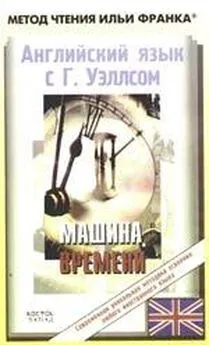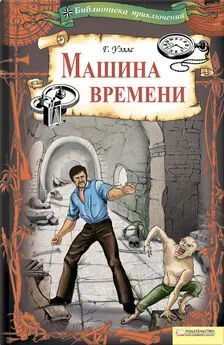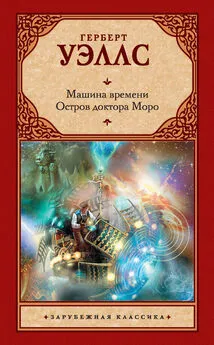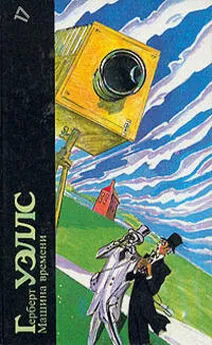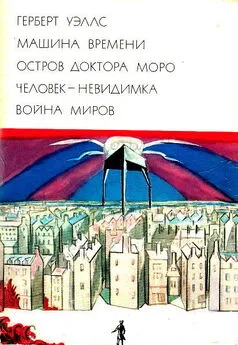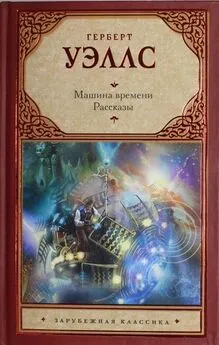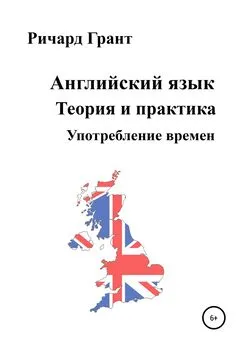H. Wells - Английский язык с Гербертом Уэллсом. Машина Времени
- Название:Английский язык с Гербертом Уэллсом. Машина Времени
- Автор:
- Жанр:
- Издательство:неизвестно
- Год:неизвестен
- ISBN:нет данных
- Рейтинг:
- Избранное:Добавить в избранное
-
Отзывы:
-
Ваша оценка:
H. Wells - Английский язык с Гербертом Уэллсом. Машина Времени краткое содержание
Английский язык с Гербертом Уэллсом. Машина Времени - читать онлайн бесплатно полную версию (весь текст целиком)
Интервал:
Закладка:
retard [rI`tRd], stratification ["strxtIfI`keIS(q)n], continually [kqn`tInjuqlI]
And this same widening gulf—which is due to the length and expense of the higher educational process and the increased facilities for and temptations towards refined habits on the part of the rich—will make that exchange between class and class, that promotion by intermarriage which at present retards the splitting of our species along lines of social stratification, less and less frequent. So, in the end, above ground you must have the Haves, pursuing pleasure and comfort and beauty, and below ground the Have-nots, the Workers getting continually adapted to the conditions of their labour.
Once they were there (а оказавшись там), they would no doubt have to pay rent (они, без сомнения, должны будут платить арендную плату), and not a little of it (и немалую), for the ventilation of their caverns (за вентиляцию своих пещер); and if they refused (а если они откажутся), they would starve or be suffocated for arrears (они будут голодать или задыхаться за долги; to suffocate — задыхаться, задохнуться; arrear — задолженность, мн. долги ). Such of them as were so constituted as to be miserable and rebellious would die (те из них, кто были созданы = родились неприспособленными или непокорными, умрут; miserable — жалкий, несчастный; нуждающийся, неприспособленный; to rebel — поднимать восстание, мятеж, бунт; бунтовать, восставать ); and, in the end, the balance being permanent (и, в конце концов, при таком постоянном равновесии), the survivors would become as well adapted to the conditions of underground life (выжившие /Не-имущие/ так же хорошо приспособятся к условиям подземной жизни), and as happy in their way (и /станут/ счастливыми по-своему), as the Upper-world people were to theirs (как и жители Верхнего Мира к своим /условиям/). As it seemed to me (как мне показалось), the refined beauty and the etiolated pallor followed naturally enough (утонченная красота /одних/ и бесцветная бледность /других/ наступили вполне естественно; to etiolate — этиолировать, обесцвечивать растения, выращивать растение в темноте; становиться бледным, бесцветным ).
cavern [`kxv(q)n], suffocate [`sAfqkeIt], arrear [q`rIq], rebellious [rI`beljqs]
Once they were there, they would no doubt have to pay rent, and not a little of it, for the ventilation of their caverns; and if they refused, they would starve or be suffocated for arrears. Such of them as were so constituted as to be miserable and rebellious would die; and, in the end, the balance being permanent, the survivors would become as well adapted to the conditions of underground life, and as happy in their way, as the Upper-world people were to theirs. As it seemed to me, the refined beauty and the etiolated pallor followed naturally enough.
'The great triumph of Humanity (окончательный триумф Человечества) I had dreamed of (о котором я мечтал) took a different shape in my mind (принял теперь совершенно иной вид в моем сознании). It had been no such triumph of moral education and general co-operation as I had imagined (это не был тот триумф духовного образования = прогресса и всеобщего коллективного труда, который я представлял себе). Instead, I saw a real aristocracy (вместо него я увидел настоящую аристократию), armed with a perfected science and working to a logical conclusion the industrial system of to-day (вооруженную новейшими научными знаниями и трудившуюся для логического завершения индустриальной системы сегодняшнего дня; to arm — вооружать/ся/; conclusion — вывод, заключение; зд. завершение ). Its triumph had not been simply a triumph over Nature (ее победа была не только победой над Природой), but a triumph over Nature and the fellow-man (но также и победой над своими собратьями-людьми). This, I must warn you, was my theory at the time (такова, должен предупредить вас, была моя теория на тот момент). I had no convenient cicerone in the pattern of the Utopian books (у меня не было подходящего проводника по образцу утопических книг; cicerone— гид, проводник ).
triumph [`traIqmf], aristocracy ["xrIs`tOkrqsI], cicerone ["CICq`rqunI]
'The great triumph of Humanity I had dreamed of took a different shape in my mind. It had been no such triumph of moral education and general co-operation as I had imagined. Instead, I saw a real aristocracy, armed with a perfected science and working to a logical conclusion the industrial system of to-day. Its triumph had not been simply a triumph over Nature, but a triumph over Nature and the fellow-man. This, I must warn you, was my theory at the time. I had no convenient cicerone in the pattern of the Utopian books.
My explanation may be absolutely wrong (может быть, мое объяснение совершенно неправильно). I still think it is the most plausible one (но все же я думаю и до сих пор, что оно самое правдоподобное). But even on this supposition the balanced civilization that was at last attained must have long since passed its zenith (однако даже и при этом предположении сбалансированная цивилизация, которая, наконец, была достигнута, должна была давно пройти свой зенит; toattain— достигать, добиваться ), and was now far fallen into decay (и теперь сильно клонилась к распаду). The too-perfect security of the Upper-worlders had led them to a slow movement of degeneration (чрезмерно полная обеспеченность жителей Верхнего Мира привела их к медленному движению = постепенной дегенерации; to lead — вести, приводить ), to a general dwindling in size (к общему уменьшению в размере = росте; to dwindle — сокращаться, уменьшаться, убывать, истощаться ), strength, and intelligence (силах и умственных способностях). That I could see clearly enough already (это я мог наблюдать уже достаточно ясно).
zenith [`zenIT], decay [dI`keI], dwindle [dwIndl]
My explanation may be absolutely wrong. I still think it is the most plausible one. But even on this supposition the balanced civilization that was at last attained must have long since passed its zenith, and was now far fallen into decay. The too-perfect security of the Upper-worlders had led them to a slow movement of degeneration, to a general dwindling in size, strength, and intelligence. That I could see clearly enough already.
What had happened to the Under-grounders I did not yet suspect (о том, что произошло с Подземными Жителями, я еще не подозревал); but from what I had seen of the Morlocks (но из всего того, что я узнал о «морлоках»)—that, by the by, was the name by which these creatures were called (как, между прочим, называли этих созданий)—I could imagine that the modification of the human type was even far more profound than among the "Eloi," (я мог представить, что их изменения /нынешнего/ человеческого типа были даже гораздо глубже, чем у «элоев»), the beautiful race that I already knew (прекрасной наземной расы, которую я уже узнал).
human [`hjHmqn], type [taIp], even [`Jvqn]
What had happened to the Under-grounders I did not yet suspect; but from what I had seen of the Morlocks—that, by the by, was the name by which these creatures were called—I could imagine that the modification of the human type was even far more profound than among the "Eloi," the beautiful race that I already knew.
'Then came troublesome doubts (затем /во мне/ возникли тревожные опасения). Why had the Morlocks taken my Time Machine (для чего морлоки взяли мою Машину Времени)? For I felt sure it was they who had taken it (теперь я был уверен, что это именно они похитили ее). Why, too, if the Eloi were masters (и почему, если элои — господствующая раса), could they not restore the machine to me (они не могут возвратить машину мне; torestore— возвращать )? And why were they so terribly afraid of the dark (почему они так ужасно боятся темноты)? I proceeded, as I have said, to question Weena about this Under-world (я было продолжил, как /уже/ говорил, расспрашивать Уину о Подземном Мире), but here again I was disappointed (но вновь был разочарован). At first she would not understand my questions (сначала она никак не понимала моих вопросов), and presently she refused to answer them (а затем отказалась отвечать на них; presently— теперь; некоторое время спустя ).
troublesome [`trAblsqm], restore [rIs`tL], proceed [prq`sJd]
'Then came troublesome doubts. Why had the Morlocks taken my Time Machine? For I felt sure it was they who had taken it. Why, too, if the Eloi were masters, could they not restore the machine to me? And why were they so terribly afraid of the dark? I proceeded, as I have said, to question Weena about this Under-world, but here again I was disappointed. At first she would not understand my questions, and presently she refused to answer them.
She shivered as though the topic was unendurable (она дрожала так, как будто тема /разговора/ была /для нее/ невыносима; endurable — переносимый, приемлемый, терпимый; to endure — терпеть, сносить ). And when I pressed her, perhaps a little harshly (а когда я начал настаивать, быть может, немного резко; topress— жать, нажимать; оказывать давление ), she burst into tears (она расплакалась; toburst— лопать, разрываться, взрываться; разражаться /гневом, слезами/ ). They were the only tears, except my own (это были единственные слезы, кроме моих собственных), I ever saw in that Golden Age (которые я видел в Золотом Веке). When I saw them I ceased abruptly to trouble about the Morlocks (когда я их увидел, я сразу же перестал беспокоить /ее расспросами/ о морлоках), and was only concerned in banishing these signs of the human inheritance from Weena's eyes (и был занят тем, чтобы = постарался прогнать эти следы человеческого наследия с ее глаз; tobanish— высылать, изгонять; прогонять, отгонять /мысли/; inheritance— наследственность; наследство; to inherit — наследовать; унаследовать ). And very soon she was smiling and clapping her hands (и очень скоро она уже улыбалась и хлопала в ладоши), while I solemnly burned a match (когда я торжественно зажег спичку).
Читать дальшеИнтервал:
Закладка:
